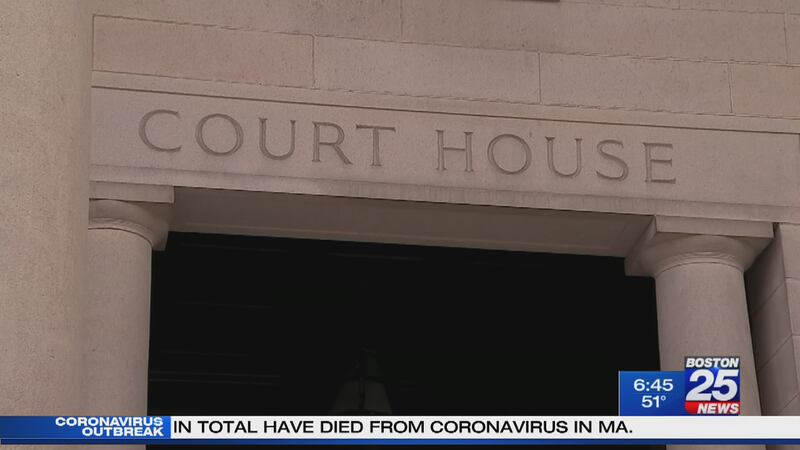BOSTON — The Massachusetts court system has been profoundly impacted by the COVID-19 crisis. The SJC has ordered all courts closed to the general public until June 1 and jury trials won’t resume until July 1 at the earliest.
Mass. Trial Court Chief Justice Paula Carey told Boston 25 News on Monday over Zoom that, while the doors to Massachusetts courthouses are locked to the public, justice is still being served inside, just in different ways.
And some of the changes could become permanent.
“I think we’ll be dealing with this for quite some time,” Chief Carey said of the coronavirus.
Among the biggest changes that will likely last beyond the COVID-19 crisis: a reliance on virtual court hearings. Right now, much of the court’s business is being done over cyberspace without lawyers or plaintiffs, prosecutors or defendants stepping foot inside a court building.
In pre-COVID times, 40,000 people a day visited one of 100 courthouses in Massachusetts. Relying on video or audio conferencing is reducing the number of people who would otherwise come in contact at a courthouse.
Even criminal arraignments are being held over video-conferencing programs like Zoom.
>>>MORE: Baker’s 4-phase approach to reopening Massachusetts: What businesses are open?
“It’s going to be a challenge to ensure that not only our employees, but the general public and all the people that we serve are protected, and that we are able to continue to deliver justice,” Chief Carey said.
Another major challenge for the courts is the review and release from incarceration of inmates identified at risk of COVID-19 infection.
Chief Carey said that more than 1,000 inmates have been released after virtual hearings. The SJC ordered the releases and the Massachusetts court system is complying, following the guidance of the SJC, according to Chief Carey.
And Chief Carey believes, for the most part, that the releases have been successful with few released inmates reoffending.
“Out of the over 1,000 people that are released, I seem to think it’s around 16 that have reoffended, which I think, in the whole scheme of things, that is low,” Chief Carey said.
Under the SJC’s decision, jury trials can resume by July 1, but Chief Carey said a September return of jury trials is more realistic.
A key issue is how to keep potential jurors safe.
In high profile cases, like Aaron Hernandez, or in the Bella Bond, Baby Doe trials, up to 900 people are summonsed to the courthouse.
Chief Carey said there simply is no space large enough to handle large jury pools while maintaining social distancing. And when jury trials resume, she said expect to see jurors and witnesses wearing masks.
Boston 25 News asked Chief Carey how long these measures, and others, will stay in effect. She said it’s not certain.
“I think we are going to take our cues from our public health experts,” Chief Carey said. “They are going to drive what it is that we do moving forward. I can’t even hazard a guess.”
Download the free Boston 25 News app for up-to-the-minute push alerts
>> Complete local and national coronavirus coverage here
RESOURCES:
- Massachusetts Coronavirus Information
- Boston Coronavirus Information
- Follow us on Facebook and Twitter | Watch Boston 25 NOW








